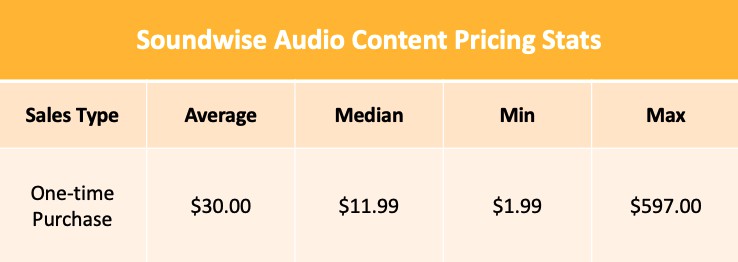Over the next few months, the askalli Independent Authors Alliance team will be covering various aspects of audio for authors. Today, we’re giving you an overview of what the landscape and industry looks like, as well as strategies you could employ to produce and distribute your audiobooks. this is the first part: the definitive guide to self-publishing audiobooks.
Thanks to megan morreale at soundwise for her contributions to this post. you can find soundwise here on their website or facebook page.
You are reading: Self publishing audio books
self-publishing audiobooks: the landscape
In the past, audiobook rights fell under the heading of “reproduction and mechanical rights” and audio was an unattractive investment for commercial publishers and independent authors. The production, storage, and shipping costs of creating tapes and CDs were high, and books often had to be shortened to fit a tape or CD limit. the assumption was that only older people and people with reading disabilities were interested in audio and it almost seemed as if the publishers were dismissive of the level of clientele buying audiobooks. some of these attitudes still prevail. according to the bookseller,only 7% of books have a corresponding audiobook.
Here as elsewhere, desktop publishing and new technologies are changing everything. People of all ages listen to audiobooks on a variety of devices, and today audiobook sales are growing faster than any other format. As digital downloads and subscription models have lowered production costs and lower retail prices, more people listen to books while driving, exercising, or just relaxing.
Technology like Kindle’s Whisper allows readers to switch between e-books and electronic books without losing their place. New technology has also made the cost of producing an audiobook manageable for independent authors because everything is managed digitally. authors and storytellers often work together on a split royalty basis, which lowers the initial cost to the writer.
Today, audiobook authors have more opportunities than ever. The global audiobook market was valued at 2.67 billion USD in 2019 and is expected to expand at a CAGR of 24.4% between 2020 and 2027.
The Nielsen Book and Consumer Survey and the Audiobook Consumer Survey say that growth in listening has grown exponentially. Podcasts and audiobooks are up about 28% overall, up from 21% in 2017. Listening to these is growing, taking up small percentages of music and radio listening time. audiobook reading time accounts for 34% of reading time spent listening in 2020, 27% reading ebooks, and 39% of print books.
In fact, audiobooks are the fastest growing publishing segment.
only in usa. In the US, audiobook sales grew 16%, generating more than $1.2 billion in revenue in 2019. For comparison, e-books generated 983 million dollars in revenue in 2019. that year marked the first time that sales of audiobooks in the u.s. uu. they eclipsed e-book sales.
but what is driving growth?
Desktop Publishing Audiobooks: Is Desktop Publishing Right For Your Audiobook?
The most successful audiobooks have a few things in common: they deliver content that the market wants to receive in audio format, and the author has a set budget, audience, or marketing expertise so promotion doesn’t start in square one.
>
what type of audiobook content do you sell?
mysteries, thrillers and the suspense category have the largest audience for audiobooks.
37% of respondents said they listened to audiobooks in these categories, up from 27% in 2018 and 31% in 2019. (audio publishers association )
A deep dive into the audible catalog returned data that measured audiobook audience engagement based on the number of reviews in each genre. science fiction & fantasy audiobooks receive more engagement than any other genre.
mysteries and thrillers follow close behind. here’s the final breakdown:
Shorter audiobooks also have a clear market.
43% of audiobook buyers say they would buy an audiobook one to three hours long (Audio Publishers Association)
This may represent an opportunity for genres such as romance and bios & memoirs, which data shows tend to be shorter than other genres.
This is not to say that authors outside of these genres shouldn’t publish an audiobook. While authors in the sci-fi, mystery, thriller, and romance genres have established audiobook audiences on platforms like audible, they also face increased competition.
audiences for other genres such as non-fiction; history; Science and Technology; biographies and memoirs; and the story can be a bit smaller. however, those authors may find it much easier to reach those audiences because their audiobooks have less competition.
for example, at soundwise, we’ve seen anecdotally that our non-fiction authors are actually more successful with online advertising (eg via facebook and google) than fiction authors. there is less competition for those ads, and nonfiction audiences are more responsive to nonfiction marketing than fiction audiences.
how much does it cost to produce an audiobook
If you plan to narrate, edit, and publish your audiobook yourself, you can plan to keep only the cost of the recording equipment. this could cost between $150 and $500 depending on the specific products you buy, although producing an audiobook at the lower end of this spectrum will be quite difficult.
If you’re working with a narrator or production company, you should expect to cost between $1,000 and $5,000 to produce a 10-hour recorded audiobook. this includes crew, narration, and editing. this does not include any potential future marketing costs, such as advertising, which we will discuss later.
Ultimately, your placement within this range depends on your production strategy. you can:
- record yourself at home. in this case, the only cost you will incur is the cost of recording equipment, which may include the following (we have included links to popular options) :
- mic: $50 – $150 (blue snowball, yeti)
- pop filter: $15 (dragonpad)
- interface: $100 (focusrite)
- mic stand: $30 (tone)
- headphones: $70 (audio-technica)
- recording software: $0 (audacity, garageband)
Here’s a breakdown of the cost you can expect for each of the four strategies above:
(source)
Audiobook desktop publishing: audiobook content creation
Once you’ve determined that self-publishing your audiobook is the right decision for you, you’ll need to do some work to prepare your content for recording.
write a script
you’re probably adapting a fiction or non-fiction book or e-book; or maybe an online course or a collection of blog articles in audiobook format. maybe you’re creating something designed specifically for audio. however, the text of the script must be written to be fully understood in audio format.
here are some things to keep in mind:
- remove hyperlinks. choose to omit them or type a reference to the source link.
- remove titles and footnotes. incorporate them into spoken text.
- delete visual elements. replace them with descriptive text that paints the same picture for the reader. if relevant, point the reader to where they can see those images separately.
- if relevant, remove calls to action or click here.
Once you’ve created your new script, read it out loud to make sure it all makes sense in audio form.
choosing a narrator
See Also: C.J. Box – Book Series In Order
You can narrate your audiobook yourself, or you can have someone narrate it for you. If you’re looking to work with a storyteller, find talent on popular platforms like Findaway Voices, Bodalgo, or Voice123. Before making your final choice, research their previous work and provide them with one to three sample pages to read as an audition.
Think carefully about the decision to narrate your audiobook yourself, if that’s what appeals to you the most. Is your voice engaging to your audience and do you have the voiceover skills to tell your story?
There is a common consensus that having a non-preferred narrator is one of the biggest drawbacks for listeners. if you’re not working with someone who has the ability to capture an audience, it could hurt sales.
if you’re thinking of narrating on your own:
- record a chapter with your phone or the free recording app
- listen with objective ears, imagining the experience you want for your listener.
- determine if it appealed to you to the story, or distracted by the narrative. if it’s the latter, consider cadence, pronunciation, accent, or perhaps a professional narrator.
- Get a friend’s opinion before you pull the trigger on self-recording.
recording
If you’re working with a professional storyteller or production company, you can skip this step. they will take care of this part on your behalf.
If you’re recording yourself at home, here are some tips to run during the recording stage to keep the editing process going smoothly:
- turn off everything in the room: fans, televisions, machines of any kind. if you hum even slightly, your microphone may pick it up.
- choose a carpeted room to reduce echo.
- stay still, specifically don’t move closer to or away from the microphone while you speak. it will create an annoying fluctuation in volume that will make editing more challenging.
- same goes for your voice, keep it at the same level.
- don’t hold your breath. you’ll drop it all at once and have to edit it.
- read from a kindle, tablet, or other electronic device. you don’t want to have to edit page turning sounds.
- schedule multiple recording sessions.
- re-record if you make a mistake.
editing
a production company will take care of this step. if you’ve done a good job of recording, the editing process will be easier. here are some tips to keep in mind when editing:
- remove mouth sounds
- remove harsh “s” noises
- make sure the volume is within the same range
- edit so each chapter is its own file, with clear section headings
create other assets
You will need more than just the recorded files to publish your audiobook. Please pack the following before you are ready to publish:
- sample audio track. It’s a good idea to have a sample track or two for people to listen to before they buy.
- book description. Prepare a couple of paragraphs to describe your book. your description should be short, concise and enticing; will do a lot of the legwork when it comes to convincing listeners to ultimately buy.
- cover art. even if your audiobook doesn’t complement a physical book, you need an image cover. Here are the specs for popular publishing platforms:
- soundwise: square image larger than 1400 x 1400 pixels and smaller than 3000 x 3000 pixels.
- audible: 2400 x 2400 pixels or more with a resolution of 72 dpi or higher, minimum 24-bit (true color), and in rgb color (not cmyk).
self-publishing audiobooks: publishing options for your audiobook
Once you’re done recording and editing, the next step is to make it accessible for download. To do this, you’ll need to choose a publishing platform and determine the price of your audiobook.
acx
Currently, the most popular digital platform for producing and distributing audiobooks is amazon’s acx (audiobook creation exchange), which uses audible as its distributor for amazon and itunes, the two largest audiobook retailers.
However, there have been a number of issues that have come to light recently. you can read more about the issues here. But overall, Orna Ross, director of the Alliance of Independent Authors, has laid out the key issues very succinctly. audible need for:
- “ceasing the practice of recovering payments from authors’ accounts when a refund is received. this should never come from the author’s percentage (which is already very low).
- “make the total number of purchases/returns transparent in author checkout panels (not net sales quietly adjusted for returns )”.
When working with acx, the author must make two decisions,
first, the author must decide whether to (i) pay the producer an up-front fee for the work (usually between $100 and $1,000 per hour finished) but pay no royalties to the producer on sales, or (ii) split the part Author’s share of audiobook royalties is 50/50 with the producer and you pay no upfront fees.
The second decision is whether to sell the audiobook through Audible exclusively or non-exclusively.
If the author grants exclusive rights to acx, then the author receives 40% of retail sales. however, the author must agree not to distribute the audiobook through other channels or in any other audio format, including the author’s website. An exclusive agreement with acx does not affect the author’s right to sell p-book and ebook versions of the same work.
In light of the recent audiblegate campaign, alli urges authors not to be exclusive with acx. if you choose the non-exclusive option, the royalty rate is 25%. in this case, you do not have the option to split the royalties with the producer and must pay them a fixed fee.
so how do you generate many sales with acx? it’s complicated.
audible is a winner-takes-all situation for authors: its algorithm prioritizes audiobooks that receive high traffic and engagement. for established authors with large audiences, it’s great because the algorithm will pick up your audiobook early when loyal listeners make purchases, and then show it to lots of new listeners.
If you don’t have a large audience, you can still hope that the algorithm will catch you driving traffic to your audiobook page on amazon. In theory, if you drive enough traffic, the algorithms will also amplify your audiobook. Exactly how long this will take or cost (if you’re running paid ads) is unknown, and has to do with factors in the algorithm that are likely to change over time and are not under your control.
how do prices work with acx?
When it comes to pricing, acx is in complete control. you will have strict distribution agreements and you will not have direct access to your audience.
- price. acx sets the price for you based on duration, as follows:
- less than 1 hour: less than $7
- 1 – 3 hours: $7 – $10
- 3 – 5 hours: $10 – $20
- 5 – 10 hours: $15 – $25
- 10 – 20 hours: $20 – $30
- more than 20 hours: $25 – 35
we can make some estimates about the selling price of your audiobook by looking at some general statistics. The median price of all books sold on Audible is $15.43. books on the mysteries & thrillers ($20.53 average) and sci-fi & fantasy categories are priced higher, usually because they are longer. here’s the full breakdown:
While your final price might deviate from the norm depending on length, popularity or another variable, it’s safe to assume this will be your starting point.
- distribution agreements. if you publish exclusively with acx, you keep 40% of sales. if you also post elsewhere, you only get paid 25% of sales.
- access your audience. even if you were amplified by the audible algorithm, you don’t have access to your customer base. This means that it is difficult for freelance authors to build an email list to take advantage of future sales. some authors add a call to action in the book itself to sign up for an email list, but it’s not as effective as having access to all listeners would be.
even so, amazon offers the potential opportunity to be discovered by a new audience; after all, it is amazon, the largest mall on the planet.
kobo writing life
since September. 2019, authors have the ability to upload their audiobooks directly through kobo writing life and sell them on kobo.
Your audiobooks will be published in a few easy steps:
- describe audiobook
- upload cover image, audio files
- create custom table of contents
- enter price and hit publish
- the audiobook will be published in 72 hours
exclusivity is not required. kwl generally encourages authors to publish and distribute with multiple platforms to broaden their audience. We also offer promotion opportunities for kwl authors. the implementation is currently being tested and will be available to all accounts at a later time. authors can publish audiobooks in multiple languages, just like they do with their ebooks. authors interested in the audiobook feature can email [email protected]
here are some helpful links about audiobooks on kobo:
- an episode of the kwl podcast with kobo’s global audiobook marketer, elyse daniels, with a great perspective on the audiobook market, genres that are doing well, tips for successfully pricing and marketing audiobooks on kwl
- the audiobook section of the kwl help center, with articles on the upload process, pricing, and frequently asked questions.
search voices
findaway voices is another popular platform for production and distribution services. They offer packages to support audiobook authors from draft to publication, including narration, editing, marketing, distribution, and sales.
they differ from acx in a few key ways:
- Support narration and production. The average audiobook created with findaway voices is around 50,000 words and costs between $1,000 and $2,000, but it varies.
- provide distribution to more markets. provide authors with access and distribution to over 40 audiobook retailers and library platforms, including audible, apple, google, nook and many more.
Basically, findaway voices acts as a conduit between you and multiple distribution platforms. As with ACX, once your audiobook is listed on any platform for sale, its reach still depends on that platform’s algorithm.
How do pricing work with search voices?
You will have more control over the price of your audiobook based on the distribution channels you choose.
For example, if you work with Findaway Voices to distribute your books on Amazon, you will still be subject to the pricing structure we mentioned above. however, with other retailers, you will be able to set your list price.
- price. Authors keep 80% of the royalties and pay a distribution fee of 20% of the royalties you earn.
- distribution agreements. do not bind authors to exclusive contracts and help authors remove audiobooks from acx exclusivity.
- audience access. findaway voices is an intermediary between you and the platform. they do not provide a solution for authors to build an email list.
findaway voices is a good option for established audiobook authors looking to move away from acx exclusivity, but it doesn’t solve the challenge of building a listener base directly for authors without a large audience.
sound
soundwise is the new solution for authors who want to sell audiobooks directly to listeners and build their own audience, without paying the high fees of traditional platforms.
soundwise differs from acx in many key ways:
- does not challenge an algorithm or other authors. soundwise is not a market. Audiobook authors use Soundwise to securely host their audiobooks and deliver the audio to listeners’ mobile devices. listeners buy audiobooks directly from the author.
- you can create an email list that you own. listeners buy directly from you and you own your email list . This is critical to any audiobook author’s long-term career: having an email list allows you to stay in touch and sell directly to former customers as you produce more books and audiobooks. An expanding email list of readers/listeners is possibly any freelance author’s most important asset.
- You can fully track and measure your marketing strategies. You will be able to optimize your marketing and sales funnels, which will also be critical for future audiobook sales.
- The platform is easy to use. could be ready for sales in an hour. audio hosting, payments, promo codes, analytics, web and mobile content delivery are all in one place.
- you can build a community, through contact with your audience. listeners can leave comments and you have the option to reply.
- It’s secure. Although listeners can listen offline, they won’t be able to move or copy your files.
how does pricing work with soundwise?
You have full control over your pricing with soundwise and have the potential to keep 100% of your profits, while audible will take 60-80% of your sales.
- price. With soundwise’s starter plan ($10 a month if you sign up annually), you keep 90% of every transaction. you keep 100% of your audiobook sales on the plus, pro, and platinum plans. this means that, in terms of profit, five audible sales are equal to 25 audible sales. This means that, in most cases, your ROI on your marketing investment will always be higher (unless you are lucky enough to actually be favored by Audible’s algorithm). here are some price statistics for audio products sold through soundwise:
It is highlighted here that the average price is three times the average price. authors on soundwise have more pricing flexibility. they just raise their price if they want to, but more often they experiment with things like book bundles and custom content, which are the types of audiobooks that are on the higher end of the spectrum. furthermore, authors can experiment with higher prices more easily because they don’t compete with each other.
- flexibility. With full control over your pricing structure, you can be more flexible and try strategies like price promotions, bundle sales, limited-time discounts, swapping audiobooks for listener reviews, and more.
- distribution agreements. there are none, you have full control.
Since all plans cover unlimited audio uploads, you can make soundwise the foundation for selling your entire audiobook catalog directly to listeners. If you’re prolific like Demelza Carlton, author of over 50 books, you can even bundle all of her audiobooks together to sell as a higher priced item.
Other authors, like New York bestselling author Lauren Blakely, use Soundwise to send private copies for advanced listeners to their review group.
Self-Publishing Audiobooks:Choosing the Right Platform for You
Should you sell through a big platform like audible or sell to your listeners using a tool like soundwise? At soundwise, we believe the answer to the question is not one or the other, but both. Whether you’re just starting out as an audiobook author or already have a large audience, marketplace platforms like Audible can give you access to new listeners and therefore shouldn’t be ignored. (note: alli recently downgraded acx/audible to caution due to the poor handling of author payments on the platform and the continued lack of transparency, accountability, or reward. many authors currently choose not to use the amazon platform, instead even though it has the largest cohort of listeners).
there you see firsthand, every day, how dangerous exclusivity is for authors, and whether you choose to use acx or not, you should also prioritize building your own audience and list of e-mail. Regardless of the platforms you use, you should experiment with different marketing strategies to optimize future sales and figure out what your sales funnel should be.
A direct-to-consumer platform like soundwise is a great tool to achieve those goals.
If you want to take advantage of big markets and direct-to-listener sales, here are some ideas to get you started:
- create free, shorter audiobooks to distribute through soundwise to build your email list while publishing full audiobooks across all platforms.
- if you have multiple audiobooks or a series, post them individually. audiobooks through acx or findaway voices, but include a call to action in the audio content itself that directs listeners to a full catalog of audiobooks on your website, included at a discount. use soundwise to host and deliver that package.
- use soundwise to distribute free copies of new audiobooks to listeners in exchange for reviews. that way you’ll collect a lot of stellar testimonials to use when you do a full release.
- use acx to sell individual audiobooks, but use soundwise to sell your audiobook plus an “add-on” at a higher price including audiobooks with bonus content, audio and print packs, bonus chapters, bug reel tracks, and more.
- use soundwise to experiment with marketing strategies to optimize your future sales funnel. you will have full access to analytics for each campaign to test.
self-publishing audiobooks: promotion of audiobooks & marketing
While self-published authors are responsible for their own marketing and promotion, the good news is that you have complete control over the search and sale to your listeners. The even better news is that once you have that audience, you can nurture and retain them as future customers.
Here are some basic strategies to focus on when you’re just starting out:
presentation of podcasts, booktube and book summaries
Search for podcasts, booktubers, and online publications where your audience is likely already subscribed or engaged, and introduce yourself or your audiobook to be featured in an upcoming podcast episode, article, or video.
You should prioritize marketing to your podcast audience because you already know they like audio content! There are two types of book podcasts to target: those that cover all kinds of books, and those that specifically stream audiobook content.
these are the ones that specifically transmit audio content
- audioshelf
- audiobooks.com
- the storyteller’s podcast
- audio books with chapters on podomatic
- brief in the morning
These podcasts cover and review books and the publishing world in general:
- bookriot
- reading glasses
- what should I read next?
here are some popular places to communicate:
- literary center
- bookriot
- public books
- electric light
the literary space of youtube has been called “booktube”. These booktube channels have a large following and often interview authors and post book reviews:
- poland bananas books
- books and long hair
- jesse the reader
- emma green
You could do the research yourself to find and feature relevant journalists, podcasters, and YouTubers. You could also pay a public relations (PR) agency with a track record in promoting audiobooks. they likely have connections that will help when it comes to covering your audiobook. Or work with a paid platform like edelweiss+ or netgalley to distribute your book to journalists for review.
interact in facebook groups
You need to be active on social media to give your listeners another way to interact with you directly.
When you’re still trying to grow your audience, be active in Facebook groups for audiobook listeners to attract new fans. here are some popular ones:
- audiobook addicts
- audiobooks!
- audiobooks are great!
- auditory fixation
use these sites to get free features or reviews
There are sites that exist specifically to help audiobook authors find new listeners, which you can ask to be featured or reviewed for free. These are some of them:
- audio archive magazine
- library magazine (has a big influence on library sales)
- audiobookjukebox.com
- audiobooksunleashed.com
- audiofreebies.com
- audiobookboom.com
awards presentation
While the act of receiving an award doesn’t automatically put you in front of a ton of new customers, having an award badge on your site or social media channels can help reassure listeners that your audiobook is worth trying . you are a new author.
Consider submitting your work for one of the following popular audiobook awards:
- audies
- vocal arts awards
- independent audiobook awards
Of course, there are many other marketing strategies to consider, including launching and developing individual social media channels, influencer marketing, online advertising, email marketing, and more, but these are exclusive to the audiobook promotion and should be considered as a core strategy. part of your marketing strategy along with other methods.
discount sites
There are also discount sites where you can discount your audiobooks and send the offer to thousands of eager listeners. bookbub has one of those sites called chirp books that you can use.
send advance copies directly through bookfunnel
You also have the ability to send advance copies to encourage reviews and for your street team using bookfunnel’s new audio service. You can also use this service to sell books directly to listeners on your website. learn more here.
self-publishing audiobooks: that’s it, you’re ready to launch
When you self-publish an audiobook, you’re in the driver’s seat, and to go from zero to sixty, you need to keep a few things in mind:
- self-publish if this is the right strategy for you. You need to be excited about the hustle and bustle that goes into marketing your audiobook and have audio content that is set up for success.
- Create the content listeners want. choose a good storyteller and develop high-quality recordings, either on your own or with a third party.
- get the benefits you deserve. Choose the platforms that best suit your needs. If you’re an established audiobook author with a large audience and know that the platform’s algorithms will automatically select you, ACX or Findaway Voices are good places to start. If you have a smaller audience and/or want to take full charge of your audiobook marketing and sales, selling directly to listeners may be the way to go. And authors with audiences of all sizes can’t afford to ignore building their email list and connect directly with their listeners. soundwise is an ideal tool for these purposes.
- marketing. meet your listeners in spaces where they already exist online to get the best results up front.
your listeners are out there; reaching them is just a matter of having the right creation and distribution for your audiobook.
See Also: Edward Marston – Book Series In Order
Self-Publishing Audiobooks: Member Case Studies
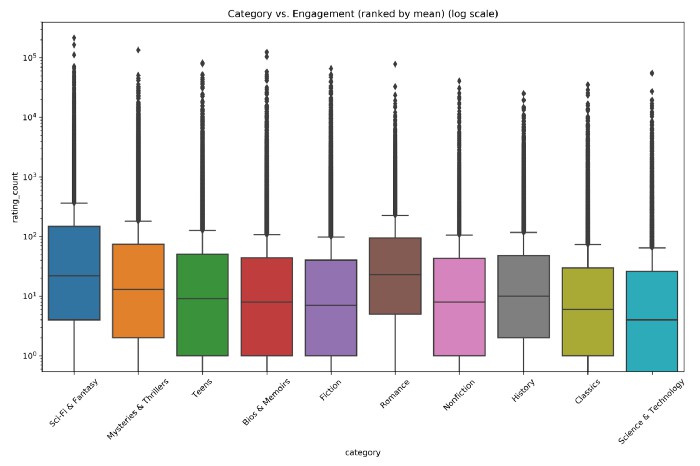
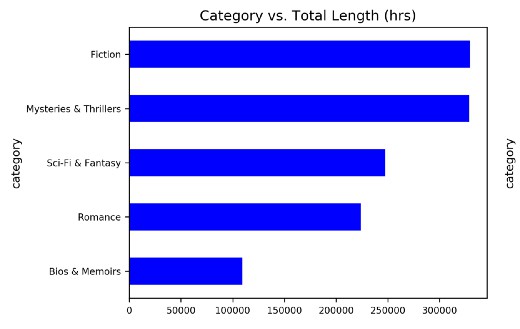
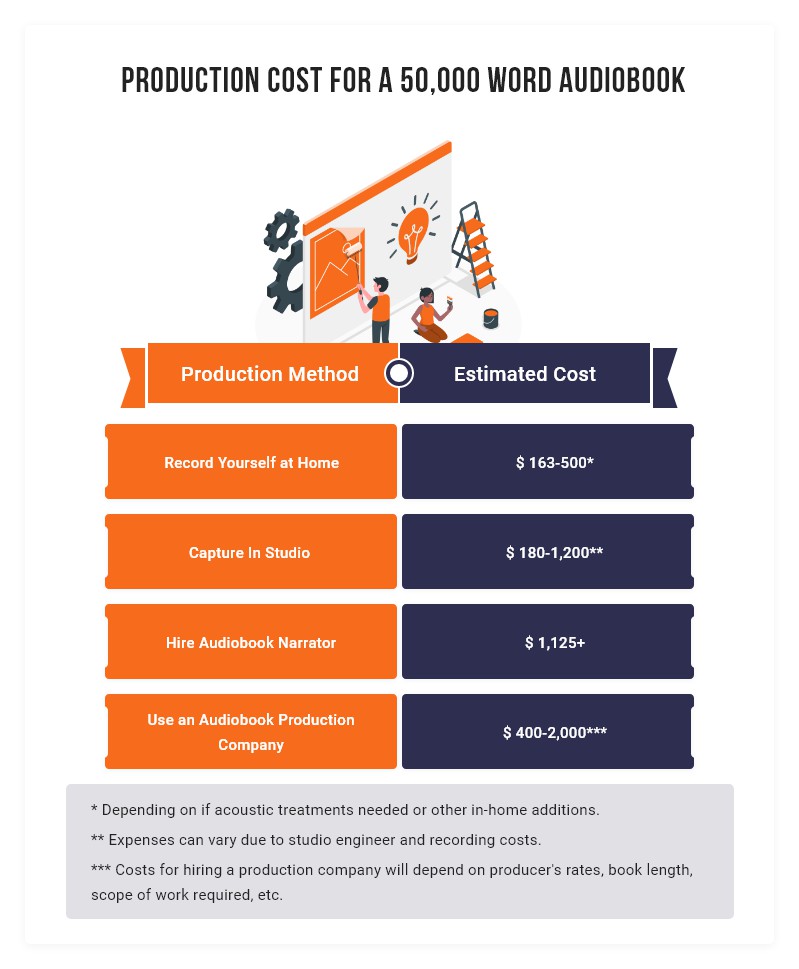
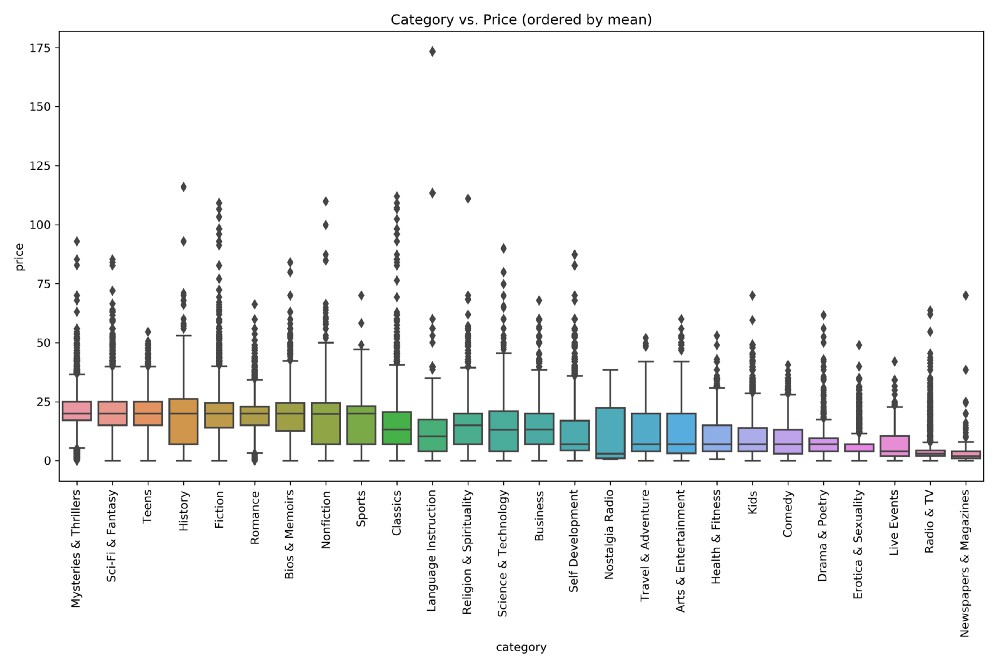 While your final price might deviate from the norm depending on length, popularity or another variable, it’s safe to assume this will be your starting point.
While your final price might deviate from the norm depending on length, popularity or another variable, it’s safe to assume this will be your starting point.